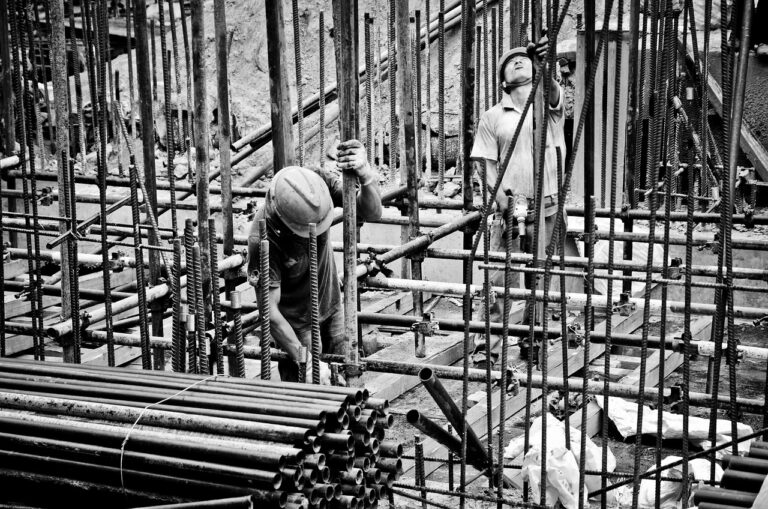
RepOne President Derek Graham
I have been active in the construction industry since 1983. Since that time, I have worn “all the hats.” I have worked my way up through the ranks from, laborer, carpenter, finish carpenter, millworker, estimator, and into management as superintendent, project manager, Director of Operations, and Senior Scheduler. I am now a practicing project controls expert and consultant.
In 1983, in Florida I began as a site-work laborer for a concrete and framing contractor. I returned, to New York City, in 1985, to work as a laborer for a commercial and residential contractor, and trained as a framing or rough carpenter. In 1987, I was promoted to finish carpenter. About that time, I took on carpentry sub-contract work. In 1989, I progressed to millworker.
From 1992-1994, I ran my own general contracting firm, National Woodworks Inc., which was retained to renovate residential and commercial spaces.
In 1994, I began as a Project Superintendent for a commercial builder. At this time, I began self-training as a Project Scheduler. In 1995, I began training as a Project Estimator of luxury residential projects. Estimates were for demolition, mechanical, electrical, plumbing, carpentry, rough framing, drywall, all Division 9 trades, architectural millwork, and manufactured casework.
My text Managing Residential Construction Projects: Strategies and Solutions, was published by McGraw Hill Technical Book Group, New York (2006). The book is still part of the construction class curriculum at Columbia University, School of Continuing Education, NY, NY, where I lectured in February 2017.
In 2009, I continued as a Senior Estimator and Senior Scheduler for a consulting firm specializing in large scale capital transit, infrastructure, and development projects. In that same year, I began serving as an Expert Witness for construction defects, damages, and subsequently, delay and disruption cases. I have provided expert services for over forty cases and testified in several states and Federal litigations. I continue to work as a senior scheduler for major developers and mega projects.
Construction Management Roles
Senior Scheduler (2009 – 2024)
By 2015, with thirty-years industry experience, I gradually increased my CPM scheduling responsibilities to megaprojects from $300M – $4B – including hospitals, out of the ground towers and mixed-use facilities. My hands-on field experience gave me Level 6 project control clarity that is a rare asset for estimators and schedulers.
I added to my skill set the forensic and analysis tool Deltek Acumen Fuse, which I used to validate my timelines, and substantiate forward pass look-aheads and EOTs
- CPM Level 5 scheduler for complex ground up, hospital, and mixed-use properties
- Monthly updates and narratives
- EOTs and notices of delay (NODs)
- Subcontractor EOT and claim management
- Oversight coordination of look-ahead risk profiles
- Complex program management and coordination of Level 5, Division 9 operations
- Spearheaded resource tracking and earned value management programs
Senior Estimator, Senior Scheduler (2008 – 2014)
From 2005, I continued my work in project controls for luxury residential and retail. However, market conditions changes in 3Q 2008 such that I had to pivot my abilities to infrastructure, light-rail, transit hub and station-house, and process-plant work.
- Estimation of large-scale transit structures and tunneling, court houses, private developer work, utilities, storm water remediation, institutional, and educational projects.
- Change order management and oversight
- Level 5 scheduling of institutional, storm water remediation, and educational projects
- Scheduling oversight of large-scale transit, and educational projects
- Expert witness for delay and defect arbitration cases
- Bid leveling and management and RFP processing
- LEED credit management and submittals
- Cost escalation studies and market analysis for major public transit agencies
- Development of scheduling, estimating, small business seminars and Powerpoint presentations for Columbia University, and public agency outreach
Chief Estimator / Project Manager (1996 – 2007)
From 1996, I was promoted from project superintendent to estimator, and soon to project manager of luxury residential and retail projects. The role involved close coordination with subcontractors, vendors, design teams, and owners
- Sub-contract negotiation and procurement
- Project kick-off and site set-up
- Mechanical, electrical, and plumbing estimating
- Shop drawing and submittal management
- Change order negotiation and management
- Coordination with client and design team
- Weekly progress meetings and minutes
- Project development oversight
Project Superintendent (1993 -1995)
In 1993, after roles as a working superintendent, I became a project superintendent – assuming project documentation responsibilities
- Supervision of daily site operations: staging, safety, material handling, and field coordination
- Site material ordering and staging
- Coordination of trades
- Surveying, stake-out, and benchmarking
- Assurance of compliance to design
- Daily progress and conditions reporting
Laborer, Rough Carpenter, Finish Carpenter, Millwright (1985 – 1993)
After a break from construction in 1983, I returned as a laborer in training for rough carpenter – about two years – in small scale interiors for residential, offices, and retail projects. I continued steady growth into roles as a field-mechanic: rough carpenter, millwright helper, finish carpenter, and cabinet maker.
These skills enabled and empowered me with the knowledge that enhanced my capabilities of project coordination and execution that I use to master the science of project controls. My fiend experience gives me visualization perspectives that allows me to do most of my work remotely.
Powered By EmbedPress









